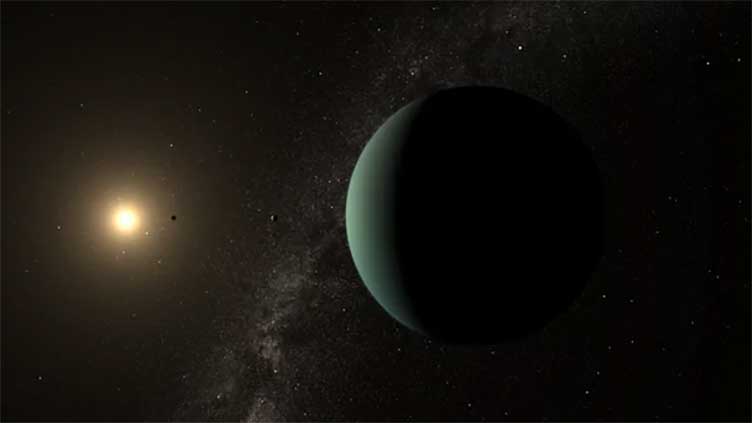'Super-Earth' exoplanet discovered that could host life - but there's a problem

Technology
Super-Earth planets are those that are more massive than Earth
(Web Desk) - A ‘super-Earth’ exoplanet has been found outside of our solar system and it could have the right conditions to sustain life.
The new planet, named HD 20794 d, was originally discovered two years ago by Oxford University scientist Dr Michael Cretignier and now an international team of researchers have confirmed its existence.
It’s no wonder why scientists are so thrilled about this discovery. The new planet has a mass six times that of Earth and orbits a star similar to our Sun. Plus, it’s located “just” 20 light years away, a press release from the University of Oxford’s physics department states.
Super-Earth planets are those that are more massive than Earth, but they are also less massive than the ice giants Neptune and Uranus.
HD 20794 d orbits sits within the habitable zone of its solar system, meaning it is at the right distance from its star to sustain liquid water on its surface, a key component for life as we know it.
Advanced methods were used to identify the planet. Cretignier first identified a potential exoplanet signal in 2022 while analysing archived data recorded by the High Accuracy Radial Velocity Planet Searcher (HARPS) spectrograph at the La Silla Observatory in Chile.
The experts warn that it is too early to say for sure whether there could be life on the newly discovered exoplanet. This is because HD 20794 d’s orbit is elliptical rather than circular. This means its distance from its star changes significantly, causing the planet to move from the outer edge of the habitable zone to the inner edge throughout its year.
The discovery is still a very exciting update in the search for exoplanets and our search for life on other planets and outside of our solar system.
"For me, it was naturally a huge joy when we could confirm the planet's existence," Dr Cretignier said.
"It was also a relief, since the original signal was at the edge of the spectrograph's detection limit, so it was hard to be completely convinced at that time if the signal was real or not."
He shared that the planet "could play a pivotal role in future missions" hoping to "search for biosignatures indicating potential life" on planets light years away from our own.
"I'm now very enthusiastic to hear what other scientists can tell us about this newly discovered planet, particularly since it is among the closest Earth-analogues we know about and given its peculiar orbit," he added. The findings have been published this month in the journal Astronomy & Astrophysics.


